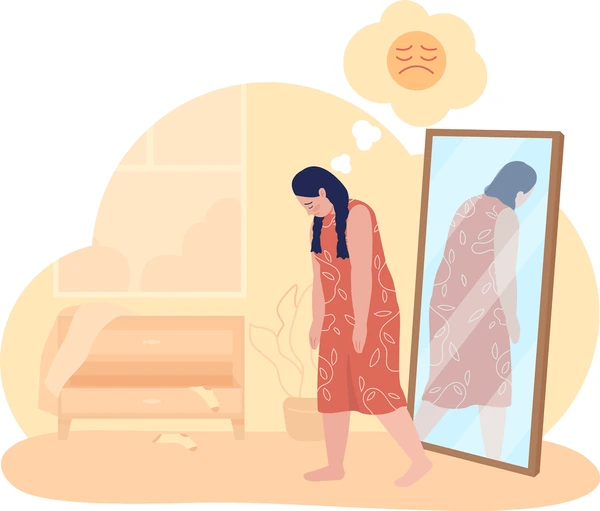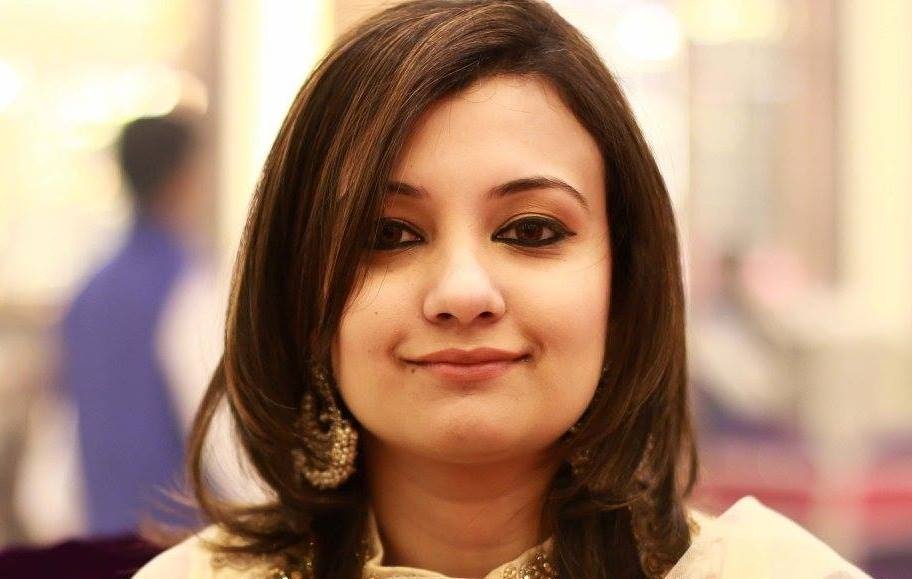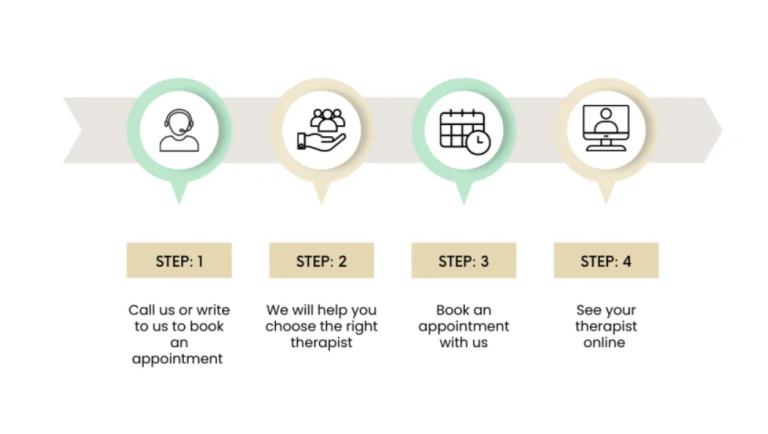
Body Image Issues
You are more than just your reflection, but this can be harder to believe when your mind convinces you otherwise. Body image issues can be complex and challenging to go through, but remember, you are not alone in this journey.
35000
Sessions
22+
YEARS EXPERIENCE
500000+
LIVES IMPACTED
Understanding Body “Image” Issues
Body image, or self image, is simply about how you see yourself and how you think and feel about it. Having a positive body image can make you feel happy, light, confident about yourself. Whereas, a negative body image can make you feel judged, sad, anxious, and embarrassed.
Your body image is a mix of your thoughts, feelings, and beliefs about your body and its appearance. It includes how you perceive your body shape, size, features, and how you see yourself in comparison to other’s bodies. Your body image can change over time. How you see yourself can be influenced by numerous factors, such as:
Your Past Experiences: Negative past or childhood experiences, like bullying, being body shamed by others, or growing up in a society where you were constantly teased or picked on for the way you look can create lasting scars and shame around the way you look, and can create a distorted body image.
Comparison With Other People: Constantly comparing yourself to your peers, friends, and “perfect”- looking celebrities can leave in a constant loop of poor body and self image. Viewing and engaging with the content of flawless social media influencers and celebrities can put you on a relentless pursuit of having the perfect body, making you feel like you are “not enough” as you are.
Your Family and Friends: Being criticized and shamed by your friends and family for how you look can also cause deep shame and a body negativity. Over time, their outlook on what an ideal body should look like, starts to become your own, creating a sense of dissatisfaction with your body image.
Your Personal Beliefs: Being overly self-critical, perfectionistic, and setting unrealistic standards based on what you see around you can further worsen your body image. For instance, hating the way your nose looks small, because you believe that a sharp nose is more beautiful and perfect, or being critical of the shape of your body can make you feel dissatisfied and frustrated with your own body.
Your Mental Health: Certain mental health conditions can affect how you view your body. For example, having anxiety can affect your body image by making you focus only on your flaws, through self-critical thoughts. Having social anxiety can make you constantly feel like the spotlight is on you, and others are judging you. This can make you anxious, and feel like a lesser version of yourself, impacting your overall well-being and confidence.
Choosing therapy for body image issues helps you break away from unrealistic standards that your mind creates for you. Through therapy, you learn to reduce the noise of your inner self-critic, and make way for more self-love, happiness, and acceptance that takes you away from over focussing on your bodily flaws..
The Role Of Therapy For Body Image Issues
Dealing with body image issues can make you feel like you are in a tough spot. On one end you are constantly preoccupied with what others are thinking of you, and on the other, there is constant chatter of your inner-critic.
When you hesitate to recognize and seek help for your body image issues, it can come with a cost to your your physical and mental health. It can also affect the quality of your relationships, as the fear of rejection or self-consciousness withholds you from creating healthy bonds. Thus, battling with a poor body image can decrease your overall quality of life. Thus, seeking help from a professional, like a therapist can offer you a supportive hand.
Therapy provides a safe space where you can explore your negative thoughts and feelings without any judgement. In therapy, you learn to challenge unrealistic beauty standards, and build self-compassion, rewriting the narrative of your inner critic.
Thus, therapy for body image issues is not about reshaping you to fit you to your ideals. It is a place for you to realize that you are not meant to be fit into a certain type or box, and that you are unique and enough as you are. You can then pursue your health goals in a realistic and mentally healthy way.


Are your body image challenges holding you back?
Counseling can be a great tool for you to manage and overcome these challenges and lead a happy, stress-free life.
We are here for you.

Benefits of Body Image Therapy
Opting for therapy to work on your body image issues can be transformative. Through therapy, you create a space for more body acceptance and body positivity. Here are some benefits you can expect through therapy:
- Challenge unhelpful, unrealistic, and negative body standards, to develop a more compassionate and positive body image
- Develop healthy habits and coping mechanisms like mindfulness, stress management exercises, and positive affirmations.
- Build confidence, self esteem, and become comfortable in your own skin
- Improve your overall well-being and address mental health concerns related to body issues like anxiety, depression, and obsessive compulsive disorder.
- Develop a healthy relationship with yourself, beyond your looks, and improve the quality of the other relationships in your life.
Process of Therapy for Body Image Issues
Consider therapy as a valuable space for introspection and addressing your body image concerns. It provides a secure environment for you to express, confront, and overcome the challenges associated with an unhealthy body image. Therapists offer patient and supportive guidance, assisting you in navigating the complexities tied to body image issues.
The process for Therapy for body image issues involves:
- Finding the right counselor who can help you with your specific needs and body image concerns
- Setting goals and creating a plan of action on how to address your concerns
- Attending regular counseling sessions, and explore underlying beliefs about body image
- Learning practical, effective tools and strategies for cultivating a healthy, positive body image
- Finding a space space to vent and sharing about your challenges
Ways To Improve Body and Self Image Issues
- Be kinder to yourself: Treat yourself with the same level of compassion and understanding as you would show to your friend. Whenever you catch yourself talking poorly to yourself, reframe it to something that is more positive. For example, you say, “I look horrible today, My body looks bad,” when you look in the mirror, a more gentle, loving way of talking to yourself would be to say, “I am more than my appearance. I appreciate my body for all that it does for me. I deserve kindness and acceptance.”
- Health over Looks: Shift your focus from how you look to a more holistic, health-based perspective. Adopt a lifestyle that focuses on improving your quality of life through a healthy, nourishing diet, and physical activity.

- Be selective with how you consume content: Social media is a pool of wide range of content, and sometimes, it is easy to get lost in it. If you find yourself constantly feeling inadequate, dissatisfied, and unhappy after interacting with certain posts, it is always best to limit such content. Unfollow pages or content that perpetuate unrealistic beauty standards. Instead, follow more body-positive and realistic accounts online.
- Focus on what your body does for you: Identifying your body only on the basis of how it looks is limiting to its true nature. Your body is a complex, well-designed, helpful group of systems. Next time, when you find yourself being critical of a certain feature, let’s say your eyes, think of how your eyes help you. For example, you can say, “my eyes help me see the people I love, cry tears of joy, and help me see how beautiful the world really is.”
Beauty is more than skin deep. If someone close to you were to describe you, how would they do it? Would they list out your features and describe how you look, or would they talk about how you make them feel? Take some time to think and reflect on this.
Opting for therapy to address body image concerns nurtures a compassionate and self-affirming perspective towards yourself. It encourages a broader appreciation of personal beauty, extending beyond mere looks. Therapy empowers you to recognize and celebrate your strengths, uniqueness, and contributions to the world, fostering a holistic and positive self-image.
Meet Our Therapists & Counselors and Book an Appointment
Our therapists are all trained psychologists qualified in helping people work through their difficulties. We work with individuals across different populations. We use an eclectic range of psychotherapies from solution oriented to insight oriented to holistic meditative approaches, depending on the need and comfort of the clients.
"What Our Clients Say about Our Online Counseling Services"







